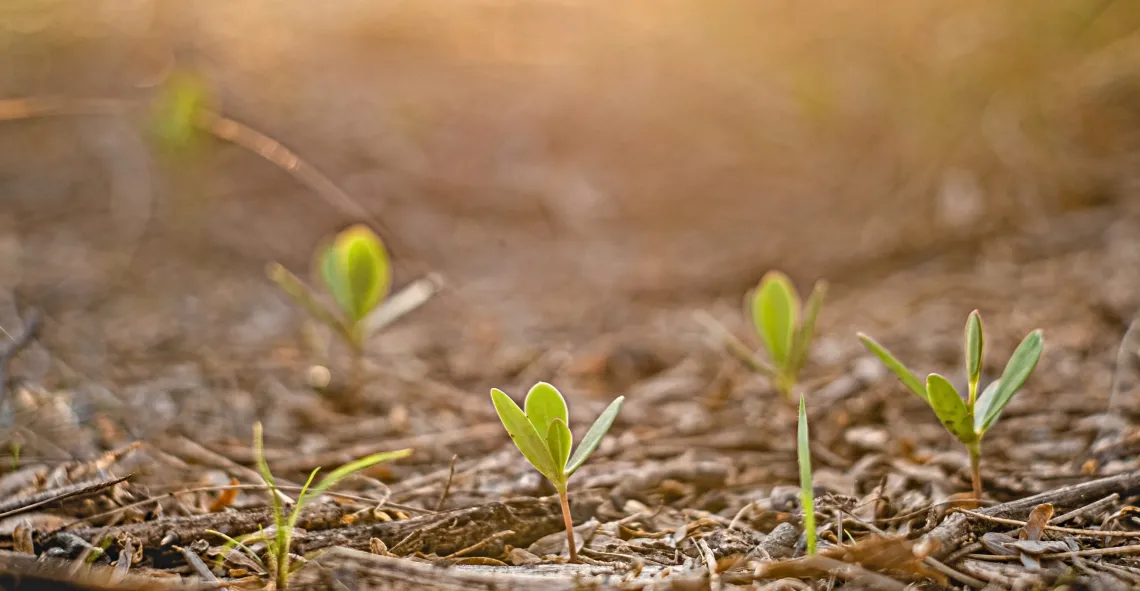Announcing the AIR Annual Resilience Theme Award
The winners of the AIR Annual Resilience Theme Grant will spend the next 12 months exploring the theme of soil science through community-centered research, outreach, and education.

“If you enjoy eating, if you enjoy looking at plants, or hiking, or breathing, or drinking clean water, then you should care about soil."
Elise Gornish is an Associate Cooperative Extension Specialist in the School of Natural Resources and the Environment, and the principal investigator for the team receiving the 2023-2024 Annual Resilience Theme Grant.
Administered by the Arizona Institute for Resilience (AIR) at the University of Arizona, the award will support Gornish and a collaborative team of researchers, students, artists, and educators to create an inspiring year-long agenda of activities engaging various audiences in the theme of soil science.
"We are so excited to support this interdisciplinary research and public engagement project for the upcoming academic year," said AIR Director Sharon Collinge. "Our Institute is dedicated to collaborative research that enhances communities through education and outreach. Soil health is central to all our lives and an excellent resilience theme, and the Gornish Lab has put together a compelling program of varied activities in outreach, research, and art."
The project, “The Art and Science of Drought Resilience Through Soil Health Initiatives,” will include activities inspiring and engaging audiences from gardeners and land managers to researchers and educators, students and parents.
“Everything relies on soil,” Gornish said about her team’s selected theme. “All life on Earth relies on it, and it is a nonrenewable resource. If it blows away in erosion, that’s it. You can’t grow flowers, food, or crops.”
Gornish defines soil health as how well it can support living things and allow for the movement of water. “If soil can’t hold onto water, then plants, bacteria, fungi, beetles, and microbes all can’t live there. Those things are all connected.” she said. “Plants need healthy soil. Animals need plants. Humans need animals and plants.”
According to their proposal, “in order for individuals to enhance soil health in their local environments – from local playgrounds to working landscapes on public lands – they need more information about basic soil science, proven strategies to enhance soil health, and evidence demonstrating the economic or environmental benefits….”
The team will develop targeted non-academic communications including public artwork, social media, zines, and presentations to teach the public about the importance and relevance of soil health in their own lives, regardless of where they live or work.
Activities will include public workshops providing Arizonans with resources to assess and enhance soil health and an associated webinar, presentations, field trips to soil biology laboratories for Tucson Unified School District high school students with special engagement for Hispanic students, a soil health field guide, public artwork showcasing positive soil health, and screening of a soil science documentary with a live expert panel discussion at The Loft Cinema.
“This project is for people who aren’t connected with the world of science,” Gornish added. “There’s a place for everyone at every age to contribute to caring for soil.”
Gornish’s team includes UArizona graduate students Claire Taylor and Philippa Johnstone, UArizona Assistant Professor of Environmental Science Albert Barbarán, UArizona Assistant Professor of Natural Resources and the Environment Aaron Lien, and muralist Ana Santos.

